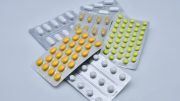Recently an influence of vitamin D on COVID-19 severity. The expert panel was discussing the importance of research into the clinical effectiveness of vitamin D for preventing SARS-CoV-2 infection (and subsequent COVID-19).
“The panel agreed that there was little evidence for using vitamin D supplements to prevent or treat COVID-19. However, they agreed that vitamin D use is well established for maintaining bone and muscle health.
They stressed that everyone should consider taking a supplement containing 10 micrograms (400 units) of vitamin D daily between October and early March. They also stressed that this was particularly important during the COVID-19 pandemic, when people may have been indoors more than usual over the spring and summer,” – National Institute for Health and Care Excellence (UK) said.
Vitamin D And COVID-19 Severity
Vitamin D is critical for bone and mineral metabolism. Because the vitamin D receptor is expressed on immune cells such as B cells, T cells, and antigen-presenting cells, and because these cells can synthesize the active vitamin D metabolite, vitamin D also has the potential to modulate innate and adaptive immune responses.
The role of vitamin D supplementation in the prevention or treatment of COVID-19 is not known. The rationale for using vitamin D is based largely on immunomodulatory effects that could potentially protect against COVID-19 infection or decrease the severity of illness.
Ongoing observational studies are evaluating the role of vitamin D in preventing and treating COVID-19. Some investigational trials on the use of vitamin D in people with COVID-19 are being planned or are already accruing participants. These trials will administer vitamin D alone or in combination with other agents to participants with and without vitamin D deficiency.
The panel agreed that low vitamin D status was associated with more severe outcomes from COVID-19. However, it is not possible to confirm causality because many of the risk factors for severe COVID-19 outcomes are the same as the risk factors for low vitamin D status. Vitamin D is a negative acute phase reactant, meaning its serum concentration falls during a systemic inflammatory response, which may occur during severe COVID-19 illness. Therefore, it is difficult to know if low vitamin D status causes poorer outcomes or vice versa.
Clinical Trials
Vitamin D a steroid hormone has profound effects on human immunity. Epidemiological data has linked vitamin D deficiency to increased susceptibility to acute viral respiratory infections. There is evidence that some patients with severe COVID-19 experience a cytokine storm with production of large quantities of interleukins, specifically IL-1 and IL-6.
Moreover, it was hipotiesied that the sufficient vitamin D levels may help to decrease IL-6 levels like tocizulamab which is a potent blocking agent of the IL-6 receptor. In the medical trial it was aimed to find out is there a relation between the disease and vitamin D levels in COVİD-19 patients.
To find out vitamin D levels and its relation with the disease severity serum 25-hydroxy-vitamin D levels will be measured in nearly 100 confirmed COVİD-19 patients. The same patients will also be evaluated for vital signs, laboratory and pulmoner CT findings. Demographic and medical data will also be collected. Statically significant positive or negative results and the comparison of these findings will be presented.





I have spent days on my computer trying to schedule a covid vaccine. Hopefully you might have an opening. I am 78 and the caretaker of my 82 year old husband.
Sandra Hall